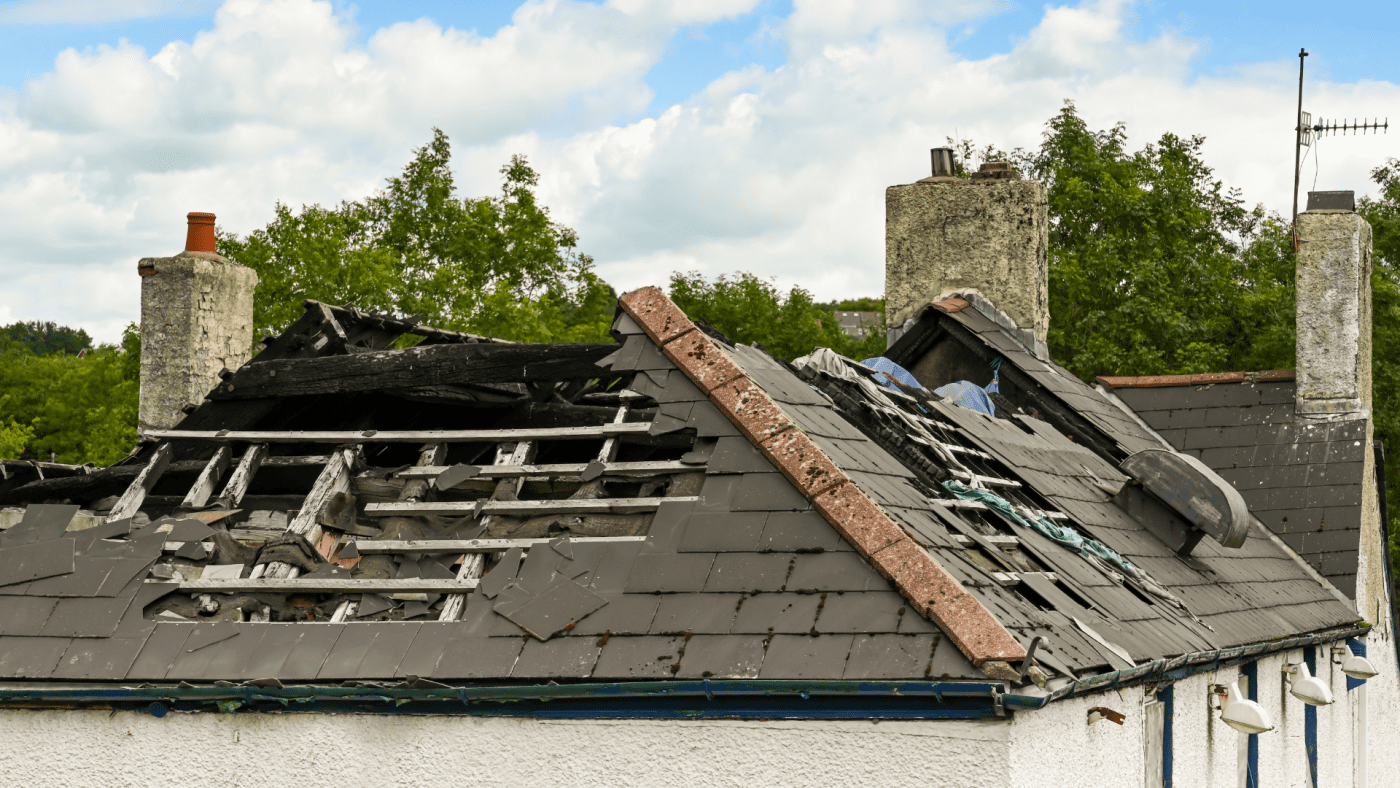Will homeowners insurance pay for damages to my roof?
If you have a homeowners insurance policy and your roof has recently been damaged; you might assume that your insurance company will compensate you for the damages to your roof. But how do you know this for sure? There is not a one-size-fits-all answer to the question “Does homeowners insurance cover roof damage?” However, there are ways to determine if your homeowners insurance will cover damages caused to your roof. First, you will need to read through your homeowners insurance policy to determine what kind of coverage your policy offers. Secondly, ask yourself some very important questions.

1. What Does Your Homeowners Insurance Policy Say?
Let’s start at the beginning, after all it’s a great place to start! You’ll need to locate your homeowners insurance policy. You probably have a copy wherever you keep important documents. If not, you can login to your insurance company’s website and view a copy online . Your policy should have some keywords that can help determine what damages will be covered by your policy. The important keywords you’ll want to look for are:
- Dwelling coverage
- Perils
- Personal property coverage
- Other structures protection
- Coverage limit
- Deductible
Read on to learn more about each of these terms in your policy.
2 Which Roof Is Damaged?
If the roof of your home was damaged, then look under the portion of your homeowners insurance policy called the dwelling coverage section. If your shed or unattached garage’s roof was damaged, you’ll need to find out if unattached structures are covered by your policy. If items in your home were destroyed because of damages to your roof, you may be entitled to some personal property coverage. No matter what type of roofing was damaged, you may be entitled to some compensation, but it will also depend upon why your roof was damaged.
3. What Caused The Damage To Your Roof?
Information on this will be found under perils. Perils, refer to the types of damages that your insurance policy may cover. Typically, homeowners insurance policies cover damages like:
- Fire and smoke
- Lightning strikes
- Windstorms
- Hail
- Explosions
- Vandalism and malicious mischief
- Vehicular damage (boat, plane, or automobile)
- Theft
- Falling objects
- Weight of ice, snow, sleet (though this is unlikely to occur in Florida)
Of course, there will be types of damage that your homeowners’ insurance policy will not cover. Perils or natural disasters that would usually not be covered under your homeowners’ insurance policy are:
- Earthquakes
- Sinkholes
- Mudslides
- Flooding damages
- City sewer system overflows and backups
- Drainage issues
4. Age & Condition Of Your Roof
It may be that your roof is damaged, and you were not the victim of a peril. It may have been that over time, your roof naturally deteriorated. It could be as simple as loosened tiles or shingles. It could also be as serious as worn-out seals and detached gutters. By any chance, homeowners insurance policies do not cover damages from natural wear and tear to roofs. Nor do they cover damages caused by a homeowner’s failure to maintain their roof.
That means even if a peril has happened to your home but it wouldn’t have resulted in less damage if your roof had been maintained, it might not be fully covered by your insurance policy. That is why you should regularly inspect your roof for leaks, loosened fastenings, proper drainage, and general conditioning.
5. Will Homeowners Insurance Cover Roof Damage & Repair?
Okay, you’ve reviewed your policy and you know that your home is eligible for coverage based on the damaged area and how the damage occurred.. Now you need to know how much compensation you are entitled to receive. All homeowners insurance policies have coverage limits and deductibles. Before your homeowners insurance policy covers roof damage repair costs, you’ll likely need to pay a deductible. Your deductible will depend on your policy. Then, your homeowners insurance coverage limit will apply. If you’re unsure of what your insurance policy coverage limits and deductible are after you read through your policy, then you’ll need to contact your insurance company for clarification.
Understanding Your Homeowners Insurance Policy Coverage in Florida
Florida is notorious for its extensive lists of perils that can destroy your home’s roof: tropical storms, hurricanes, debris in high-speed winds, damaging humidity, salty air and UV rays. It goes without saying but you’re bound to experience roof damage if you call the sunshine state home. To be sure you fully understand your homeowners insurance policy call and speak with one of our knowledgeable representatives to discuss your coverage. We can help you decipher the jargon, even if you didn’t purchase your policy through us. We can also re-quote your policy to make sure you are getting the best deal for the coverage you need.
To find out more about protecting your personal belongings, call Kirby Soar Insurance at (813) 752-1680 or contact us through our website

